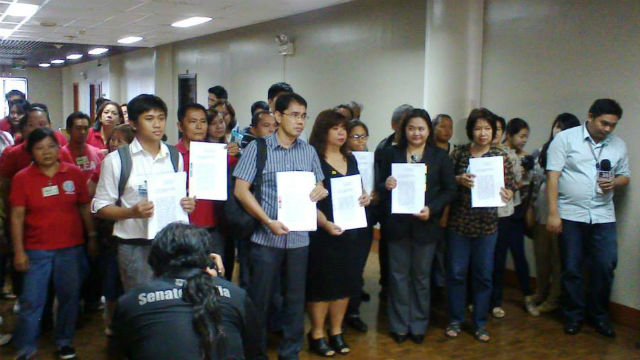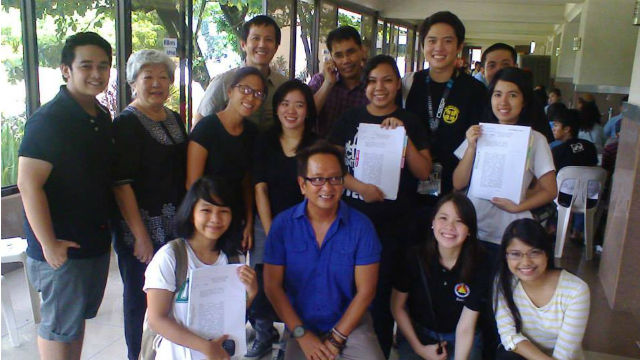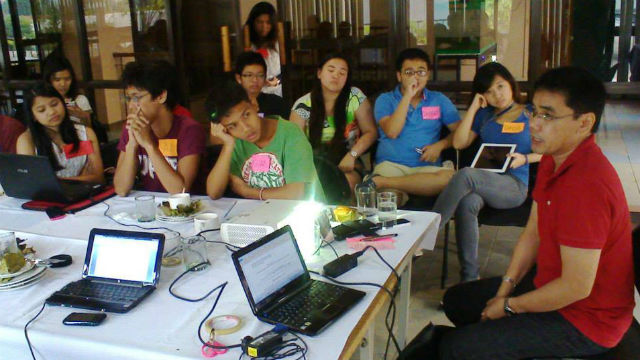by Michael Lim Ubac, Leila B. Salaverria Dona Z. Pazzibugan
EXCERPT:
 Malacañang on Tuesday defended the omission of issues that critics of President Aquino claimed should have been included in Monday’s State of the Nation Address (Sona), including the freedom of information (FOI) bill, maritime disputes with China, mining reforms, job creation and an economic road map for the second half of his term.
Malacañang on Tuesday defended the omission of issues that critics of President Aquino claimed should have been included in Monday’s State of the Nation Address (Sona), including the freedom of information (FOI) bill, maritime disputes with China, mining reforms, job creation and an economic road map for the second half of his term.
“Many are asking—not just necessarily about the FOI—but given the limited amount of time and if we heed these suggestions, it could take us two days listening to Sona,” said deputy press spokesperson Abigail Valte.
To appease everyone, she said that some had even suggested that the President make a checklist of all the sectors, and mention them all.
What Aquino delivered on Monday before the joint session of Congress was the longest by a sitting President since democracy was restored in 1986. The 55-page Sona consisted of 11,641 words and took the President one hour and 42 minutes to deliver in Filipino.
In an interview, Secretary Herminio Coloma of the Presidential Communications Operations Office said that the Sona was couched in the language of Juan de la Cruz since it was meant to be “a teaching and learning opportunity.”
Responding to criticism that the speech was long on details but short on some of the more urgent concerns of the people, Coloma claimed the address was “very substantial.”
“I’m in the government and yet I continue to learn from his exposition of the major policies and decisions that have to be made,” he said.
Coloma said Aquino’s attention to detail led the President to spend time explaining why the government could not just buy a fighter jet, or hire en masse new police officers, or the necessity of implementing a fare hike for passengers of the state-subsidized elevated rail system in the metropolis.
Seal of transparency
On the silence of Aquino on the FOI bill, Coloma noted that the Senate passed its version in the last Congress, and that only the House of Representatives had stalled its passage.
However, he said that “in practice, the government is already implementing all those principles of transparency and accountability” via performance-based bonuses and a transparent budgeting process, among others. He said these principles were the “essence” of the FOI.
Coloma also explained why the Sona lacked a concrete set of action plans for job creation and economic growth even after Catholic bishops chided the administration for pursuing a jobless growth.
He said the basic road map for growth was in the Philippine Development Plan. “For every outcome, there are performance indicators. The National Economic and Development Authority has embarked upon an updating of all performance indicators, and we’ll complete it by December,” he said.
Freedom of information
“FOI may not have been mentioned in the Sona, but the premise for FOI was latent throughout his talk on the tuwid na daan (straight path),” said Ifugao Rep. Teddy Baguilat. This means the bill’s supporters have every reason to push their campaign for the bill’s passage, he said.
“I’d tell my fellow advocates to praise P-Noy for addressing corruption even from his own appointees in the National Irrigation Administration, and immigration and customs bureau,” he said. “Then we can justify the lobby for FOI by saying that if we had the law, there would be less corruption woes in the customs and other offices.”
The FOI Youth Initiative (FYI) said it would intensify its lobbying efforts to secure passage of the measure.
“With or without the FOI in the Sona, we will remain steadfast in our campaign for the enactment of this important piece of legislation. While we still hope that the President realizes the need for the FOI law to ensure broader citizens’ participation in governance and development, we don’t have the luxury of time to wait, especially in light of recent issues involving public funds allegedly being spent on bogus organizations,” Nic Angeles of FYI said in a statement.
The FOI bill seeks to strengthen public access to government data and transactions in order to improve transparency and accountability. It has been touted as a tool to combat corruption. President Aquino said during his election campaign that he would support the FOI bill.













